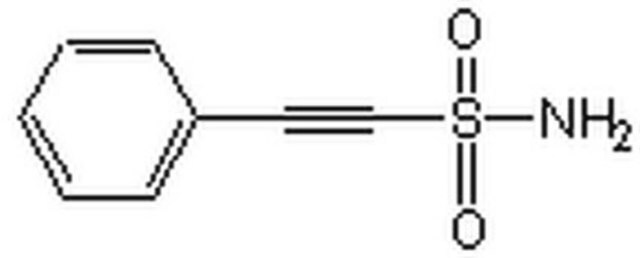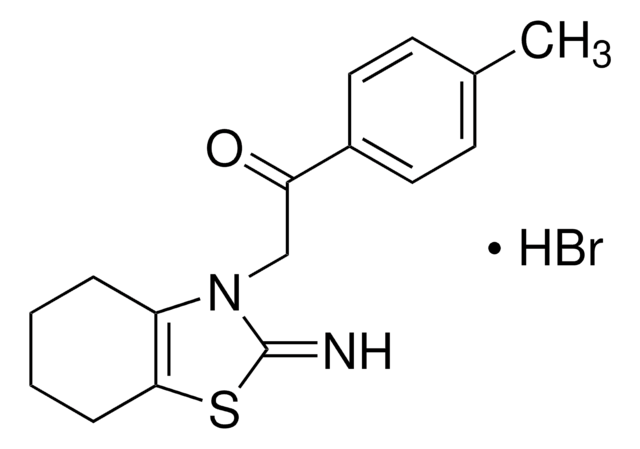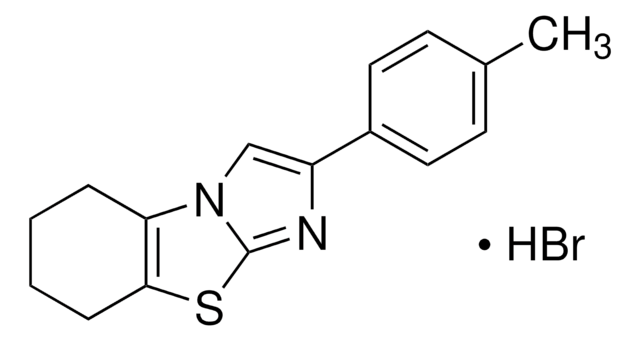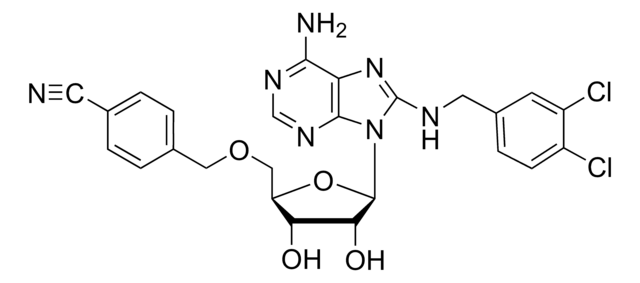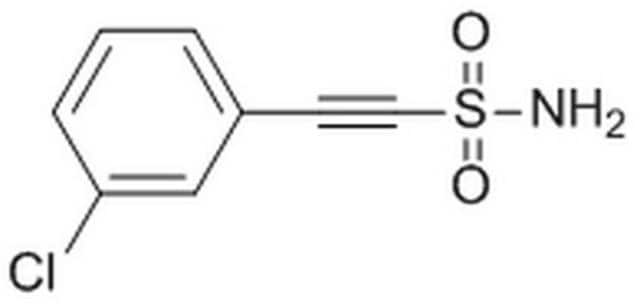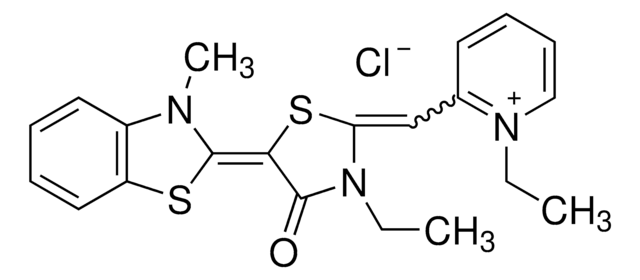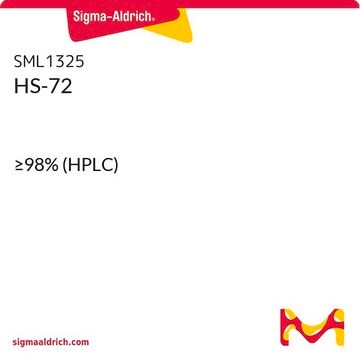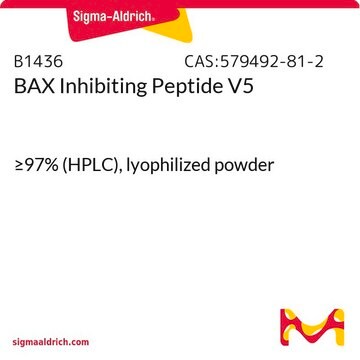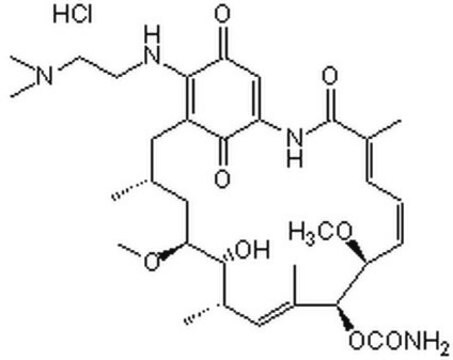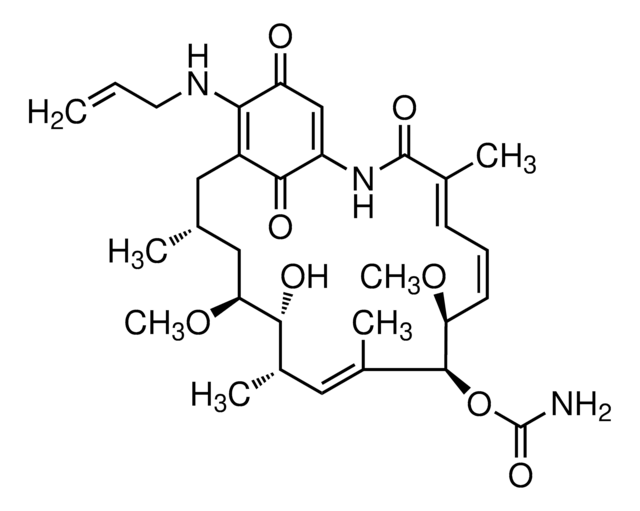P0122
Pifithrin-μ
≥97% (HPLC), solid
Synonym(s):
2-Phenylethynesulfonamide, PFTμ
About This Item
Recommended Products
Quality Level
assay
≥97% (HPLC)
form
solid
storage condition
desiccated
solubility
DMSO: soluble >10 mg/mL, clear
H2O: insoluble
storage temp.
2-8°C
SMILES string
NS(=O)(=O)C#Cc1ccccc1
InChI
1S/C8H7NO2S/c9-12(10,11)7-6-8-4-2-1-3-5-8/h1-5H,(H2,9,10,11)
InChI key
ZZUZYEMRHCMVTB-UHFFFAOYSA-N
Application
- to treat microglial cell line to analyse its neuroprotective effect on M1-like and M2-like phenotype
- as heat shock protein (HSP)-70 inhibitor, to treat transfected Marc-145 cells
- to inhibit heat shock cognate 70 (Hsc70) to elucidate heat shock chaperones mouse embryonic stem cells
Biochem/physiol Actions
signalword
Warning
hcodes
Hazard Classifications
Acute Tox. 4 Oral
Storage Class
11 - Combustible Solids
wgk_germany
WGK 3
flash_point_f
Not applicable
flash_point_c
Not applicable
ppe
dust mask type N95 (US), Eyeshields, Gloves
Certificates of Analysis (COA)
Search for Certificates of Analysis (COA) by entering the products Lot/Batch Number. Lot and Batch Numbers can be found on a product’s label following the words ‘Lot’ or ‘Batch’.
Already Own This Product?
Find documentation for the products that you have recently purchased in the Document Library.
Customers Also Viewed
Our team of scientists has experience in all areas of research including Life Science, Material Science, Chemical Synthesis, Chromatography, Analytical and many others.
Contact Technical Service